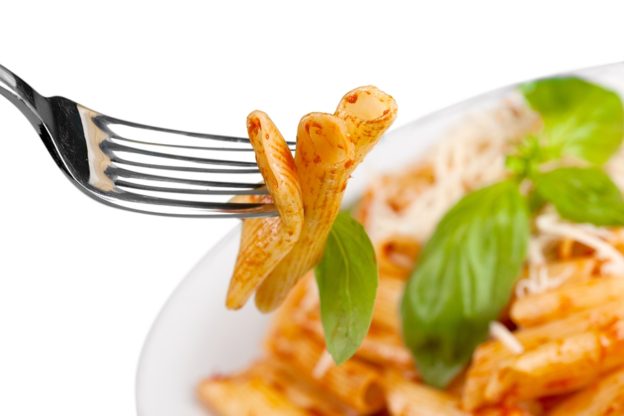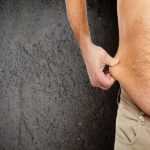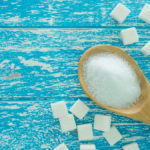By David Blyweiss, M.D., Advanced Natural Wellness
May 16, 2018
- Can eating pasta help you lose weight?
- Why adding more processed carbohydrates is a bad idea
- Here’s how to satisfy your pasta cravings
I constantly warn my patients not to take news headlines to heart. But when some sort of weight loss miracle hits the major news outlets, it’s hard for some folks to ignore.
The latest bit of news that has taken the media by storm is that eating pasta can help you lose weight. Almost all of the big players have featured this breaking story – from News Week to USA Today.
Well, before you decide to add more pasta to your diet, you should probably know two things.
First, the study that produced these headlines was produced by authors who have received grants or funding from numerous food manufacturers. This includes Barilla – a pretty popular brand of pasta here in the U.S.
Second, the way the research was structured there was literally no way to make a link between any type of scientific link between weight loss and pasta
The truth is, it’s unlikely that pasta will do anything to help you lose weight. In fact, it may actually increase your waistline.
Adding more Refined Carbohydrates to Your Diet is a Bad Idea
Here’s the deal.
Most of today’s conventional pasta is made out of refined wheat. All of the nutrients have been stripped out of it. This puts pasta in the same category as other processed carbs.
It’s starchy. It’s low in fiber. It’s a common source of gluten and a poor source of nutrients.
Processed carbohydrates like pasta are associated with an increased risk of metabolic syndrome and type 2 diabetes. They also increase your risk of cardiovascular disease and fatty liver.
To top it off, the insulin spike that occurs after you eat refined carbohydrates places you at a greater risk of weight gain and obesity!
Are You Suffering From...
- Love handles and a pot belly
- Romance that isn't what it used to
- Forgetfulness and inattention
- Low (or no) strength and endurance
- A sex drive that's shifted into neutral...or worse
If so...you may have Mature Male Burnout. Click here to discover more about this unique condition and what you can do about it.
The bottom line: If you’ve already made the positive decision to avoid pasta, don’t start adding it to your menu with the idea that it will help you lose weight. And if you’re a fan of pasta, don’t let those headlines I mentioned earlier entice you into eating more of it.
There are much healthier alternatives.
3 Healthy Alternatives to Pasta
You can make your own noodles at home using a variety of vegetables that are just as satisfying as pasta.
All you need is an inexpensive kitchen utensil called a spiralizer to create realistic noodles from fresh organic squash or zucchini. (You can also have some fun with it by experimenting with things like sweet potato or parsnip noodles.)
I also like organic chickpea, lentil and edamame pasta. It has more protein and fiber than regular pasta so it’s going to be much healthier for you. Just make sure to look for a brand that only contains organic chickpeas lentils and edamame– no added flours or preservatives.
And while I haven’t tried it yet, I’m intrigued by organic black bean spaghetti. It supposedly has a taste and texture similar to that of conventional pasta and works well with almost any kind of sauce.
In the meantime, stick to your guns. The best tools in your weight loss arsenal are your organic fruits and vegetables, healthy fats, clean proteins and plenty of physical activities. No pasta necessary.
SOURCES:
Chiavaroli L, et al. Effect of pasta in the context of low-glycaemic index dietary patterns on body weight and markers of adiposity: a systematic review and meta-analysis of randomised controlled trials in adults. BMJ Open. 2018 Apr 2;8(3):e019438.
Hu FB. Are refined carbohydrates worse than saturated fat? Am J Clin Nutr. 2010 Jun; 91(6): 1541–1542.
Jang EC, et al. Comparison of efficacy of low-carbohydrate and low-fat diet education programs in non-alcoholic fatty liver disease: A randomized controlled study. Hepatol Res. 2018 Feb;48(3):E22-E29.







